File Zero Read online
Page 18
“Now what?” Sanders asked.
“Look around for my phone.” Maria drove straight across open tarmac, the speedometer needle steadily approaching ninety.
Sanders checked the center console and then the glove box. “Got it.”
Tires screeched as an olive-green Humvee skidded out behind them in pursuit. Military police. Great. She already had the pedal to the floor. “Find something to start a fire.”
Sanders blinked at her. “Sorry?”
“That Division guy was a smoker. Find a lighter.”
Sanders rifled through the center console again. “I think my talents would be better served shooting at our pursuers, don’t you think?”
“We’re not killing soldiers,” she repeated.
“Ah! There we are.” Sanders pressed the stubby black cigarette lighter into the dashboard socket. “Now what?”
“Hang on.” Maria pulled the wheel to the left and the Jeep swerved around a parked F-22 Raptor. Then she slammed the gas again, heading straight for the gate, a twelve-foot chain-link fence topped in spirals of barbed wire.
Two men in white helmets sprinted for the gate. In their arms each of them held an M4 carbine, the lighter cousin of the M16 assault rifle.
“Shit,” Maria muttered. “Duck!” She tucked her shoulders and neck down as low as she could behind the wheel. Sanders threw herself sideways, her head practically in Maria’s lap.
The gas-powered carbines rattled as the two MPs fired at the oncoming Jeep. The windshield blew out; bullets smacked the grille. A tire blew and the Jeep swerved dangerously. But Maria kept a firm grip on the wheel and her foot on the gas, keeping it as straight as she could without being able to see where she was going.
The machine guns stopped and the two men shouted as they leapt out of the way. The Jeep crashed through the gate with a jarring smash and kept going.
Maria dared to sit up. They were losing speed fast with the blown-out tire, and the engine light on the dash told her that something important had been hit.
“They’re gaining on us,” Sanders warned as she glanced behind them. They’d put some distance between them and the Humvee, but it was still on their tail and coming up fast. “We can’t outrun them…”
“We’re not.” Maria jerked the wheel to the left and the Jeep fishtailed, rounding toward the front entrance of the main building. She pressed the pedal down and headed for the parking lot beyond. The Jeep bucked, struggling to shift gears and accelerate; the transmission was damaged. They were topping out just under sixty.
Just a little further, she pleaded mentally.
The Jeep entered the lot and flew down a long row of parked cars on either side. The Humvee was still on them and closing the gap, less than fifty yards between them.
Tock! The black cigarette adapter popped to let her know it was ready for use. About time. Maria tucked the gun in her pants, steering with one hand, and then yanked the cigarette lighter from the socket. She slowed as she reached the end of the row and jerked the wheel, spinning the Jeep in a tight about-face.
Then she pushed the pedal to the floor again. The Jeep bucked twice as it sped toward the oncoming Humvee.
“What are you doing?” Sanders shouted as the gap between them closed.
“Get ready to jump out.” Maria stared straight ahead, playing chicken with the Humvee, which refused to slow.
“When?”
“Now!” Maria pushed open the driver’s side door and rolled out. She didn’t hesitate long enough to see if Sanders had done the same. With the black cigarette lighter smoldering, gripped between two knuckles, she hit the pavement and rolled twice. Pain shot through her body; she’d definitely be bruised all over, but it wasn’t the first time she’d jumped out of a moving car.
The Jeep kept going, barely slowing the last fifteen yards between it and the Humvee. The green MP vehicle tried to slam its brakes and veer, but there was nowhere for it to go and not enough room to decelerate. The black Jeep smashed into the left front end of the Humvee; the Jeep’s passenger-side wheels came off the ground and it rolled sideways onto two parked cars. The Humvee slammed through it, swerving, and collided into the opposite row of cars.
But Maria didn’t wait around to watch. As soon as she stopped rolling, she clambered on her hands and knees between two cars and stole down the lane between them. A glance over her shoulder showed her that Sanders was not far behind her, wincing with each movement but seemingly okay. The AR-15 was slung over her back by a strap.
“That was a fine trick,” Sanders said breathlessly, “but it won’t buy us more than a minute or so. There are more of them on foot, and now neither of us are in condition to run.”
“We’re not running,” Maria replied quietly. She tried each door handle they passed, staying low and out of sight. The sounds of shouting and footfalls were not far off.
After the seventh or eighth car she tried, one of the doors finally opened, left unlocked by its owner.
“We don’t have time to hotwire a car,” Sanders said in exasperation.
“Just shut up a second,” Maria snapped. She pulled the latch to access the gas tank, and then tore off the left sleeve of her shirt with a grunt. Sanders brought the assault rifle around and held it in both hands, barrel aimed upward, as she waited for them to be discovered.
Maria twisted off the gas cap and stuffed the sleeve into the tank as far as she could, leaving only a few inches hanging out.
Then she held the Jeep’s orange-tipped cigarette lighter under it.
“Come on,” she coaxed quietly. The voices were getting closer. The fabric smoldered, but didn’t ignite. “Come on, come on…”
A flame jumped as the sleeve caught. “Let’s go!”
“One moment.” Sanders stood, brought the gun to her shoulder, and fired off a burst. Men shouted and leapt for cover. Maria had already started running. Sanders followed, staying low and moving quickly as the sleeve burned.
The fire reached the gas tank and the car exploded in a cacophonous bellow. Maria didn’t stop, didn’t even glance back at the orange fireball that plumed into the sky or the black smoke that rolled thickly into the air. But she heard the shattering of adjacent car windows as they blew out from the explosion, and then a second resonant boom as a nearby car caught fire and its fuel tank combusted.
The two of them ran serpentine through the parking lot, staying low, until Maria paused beside a plain white sedan that looked like it was sufficiently old enough for their purposes. She winced instinctively with another thunderclap of a detonation in the tightly packed parking lot.
She glanced around to make sure no one was in their vicinity. The black smoke of the fires was a thick curtain between them and their pursuers. Then she smashed in the car window with an elbow, popped the lock, and pried the casing off the ignition column. It took her thirty-five seconds to hotwire the car; she needed a vehicle old enough for it to lack the transponder chip that many newer models contained that made stealing them at least slightly more difficult when in a rush.
“See anyone?” she asked Sanders as she touched the two ignition wires and the engine turned over.
“No.” Sanders scanned left and right carefully, holding the AR-15. They could hear the voices, the panicked shouts and calls for aid behind the roar of the three-car fire, but it had given them the precious minute and a half they needed to get some distance and get to a car.
“Get in.” Maria slammed the pedal down and they were out of the lot in seconds. She glanced in the rearview; it didn’t look like anyone was chasing them, but that didn’t mean no one had spotted them leaving. “Tell me you grabbed my phone.”
Sanders pulled the burner from her pocket and passed it over. “That was good thinking back there,” she noted.
“Yeah, thanks.” She pressed a speed-dial button.
“Strickland,” he answered before the second ring.
“It’s Johansson. We need a quick pickup.”
“Tell me where and wh
en.”
“Ten minutes. The grocery store just off of Cherry Street, southwest corner. White sedan, late nineties.”
“I’ll be there.”
“Wait, Todd. Do you know where Kent is?”
“Not at the moment,” he replied. “But I know where he’ll be.”
CHAPTER TWENTY SIX
President Pierson drummed his fingers against the tabletop of the Situation Room, irritable and anxious in equal measure. Three years of his term had gone more or less swimmingly, and now it felt as if the world was falling down around him.
He was quite proud of the fact that his hair hadn’t grayed during his time in office, as it had with so many other commanders-in-chief. Now he feared that with less than a year to go, there was still plenty of time for the stress to permeate his roots.
He was glad to be out of Camp David and back in the White House; the retreat was a lovely property, but it felt isolated, and even though most of his news and reports came through his chief of staff, Peter Holmes, regardless of where he was, communicating only by phone or computer made him feel all the more detached from his duty. He thought he would feel stronger and more capable again once he returned, but here and now in the Situation Room, surrounded by the men and women who helped him lead this country, he still felt agitated, overwrought, strangled by the state of affairs that plagued his position.
“I gave a direct order.” He did not have to speak loudly. The Situation Room was silent enough to hear a pin drop. “I commanded that the Fifth Fleet be pulled back. Why was that not done?”
“Sir, if I may.” Secretary of Defense Rigby straightened in his chair. “The coordination of turning about that many ships from a direct course is not as simple as making a phone call. I understand that you don’t have military experience, but—”
“My experience has nothing to do with this,” Pierson snapped. “And now three more IRGC ships are destroyed.”
“Mr. President,” Peter Holmes intervened calmly. “The report from our navy clearly states that the USS Constitution was, in fact, backing off from the strait and Iran’s blockade. The three Iranian ships in question pursued our destroyer. They recognized it as the ship that fired on theirs. There is no question about it; they were out for retribution. Had the USS Pennsylvania not been there to assist, the Constitution might have been destroyed. You can read all of this for yourself if you’d like. It’s in Admiral Buchanan’s report.”
Assist, Pierson thought bitterly. Is that what we call the wanton destruction of foreign vessels? “Then it was an act of war,” he said aloud.
“Tehran is still refusing to openly declare it,” Rigby said. “They’re content to make themselves appear the victim in the eyes of the global community. In fact, they believe it justifies their actions.” Rigby leaned forward, his gaze meeting Pierson’s somberly. “They’re closing the Strait of Hormuz, Mr. President. And not just to American vessels, but to any country that allies with us. This is what we feared. It’s happening now.”
Pierson rubbed his temples. “The United Nations won’t stand for that. There will be a military response—”
“The UN is in the process of launching an investigation into the events that have already occurred,” said Roland Kemmerer, the secretary of state. “They’re currently reviewing our naval reports, and will be sending a team to the Persian Gulf to make an assessment. Suffice it to say they’re not necessarily in our corner.” He paused for a moment before adding, “And frankly, sir, we don’t have the luxury of waiting for a conclusion.”
Pierson frowned. “If it comes down to a diplomatic resolution, we’ll make the time, Roland.”
Kemmerer glanced over at Rigby for help. The general, in response, slid a sheet of paper from the folder in front of him and passed it to the president.
“What is this?” Pierson asked, though as soon as he looked at it he knew right away. The sheet was a graph, bearing a red line that rose precipitously. He didn’t need to look at the axis to know what it represented.
“A forecast,” Rigby answered, “put together by our top economic analysts. Sir, more than thirty percent of the oil consumed in this country passes through the Strait of Hormuz. As you can see, within mere hours of a shutdown, oil and gasoline prices will spike. Within days, the price per barrel is expected to rise by more than one hundred dollars. For context, the current price is approximately seventy-nine dollars per. In less than two weeks, we could see gasoline prices surge as high as seven to eight dollars per gallon. We’re talking about crisis levels—”
“Crisis levels.” Pierson dropped the sheet to the table and scoffed. “We’re talking about money, General. Money is not a reason to go to war.” Even as he said it, he knew that history had set a much different precedent. Money, in one form or another, had always been a reason to go to war.
“It’s not as simple as that,” said Kemmerer gravely. “We have to consider the judgment of the people and how they’re going to perceive this. In the wake of a major terrorist attack on our own soil, perpetrated by Muslims at the cost of hundreds of American lives, they’re not only going to see the administration as kowtowing to a foreign Muslim power, but also paying dearly for it.” He shook his head. “We need only to look at the post-9/11 zeitgeist and combine it with the oil crisis of the seventies. It would be a very volatile situation, sir.”
“Satellite imaging and foreign intelligence suggests that Tehran is outfitting the IRGC with warheads,” Rigby continued. “There are growing concerns about the Shiite militias in Iraq and Oman, from which Iran has already garnered support. I’ve seen war, Mr. President. I don’t wish it on anyone, least of all our men and women that are on the frontlines in the Persian Gulf. But we have to acknowledge that the time for peaceful resolution has passed. Every hour that passes puts more of a stranglehold on the American economy. Every minute that ticks by gives Iran more of an opportunity to plan, to coordinate efforts with the militias and devise a way to combat the Fifth Fleet. We have to recognize that we are not infallible, and they’ve already found the chink in our armor. Money.”
The president rubbed his temples. “You’re right. You’ve seen war. You’ve also seen them avoided. So if that’s your professional stance, General, then what do you suggest?”
Rigby’s chest puffed out slightly, as if he’d been waiting for this moment. “First and foremost, sir, I believe we should declare the IRGC as a terrorist organization for their activities in the Persian Gulf.”
“You can’t be serious,” Kemmerer interjected quickly. “They’re a branch of Iran’s armed forces—”
“Technically,” said Rigby loudly over him, “the Islamic Revolutionary Guard Corps is a militia, and therefore we’d be well within our right. We do so in response to the closing of the strait and to pull focus from Iran in the eyes of our people. Secondly, we dispatch B-52 bombers to Bahrain. If Tehran really is outfitting their ships with warheads, we need to be prepared for a measured counterstrike. And lastly, sir, you’re going to have to address the nation. They’re going to have to hear all of this from you.”
Kemmerer nodded his agreement. “He’s right. Your approval rating is still strong; people will rally behind you. We have you explain that despite the immense pressure, you’re doing everything you can to avoid war and the possible expenditure of American lives. And we do it today, as soon as possible, so they’re not hearing it from CNN or the internet first.”
Pierson nodded. He had not yet addressed the nation since the initial bombing of the first IRGC ships; America deserved answers, and they deserved them directly from him.
“I have an idea about that,” said Chief of Staff Holmes, raising his pen in the air to punctuate his point. “There’s a commemoration ceremony being held on the Queensboro Bridge this afternoon. New York is closing the upper lanes for one hour while the mayor gives an address for those who lost their lives in the Midtown Tunnel bombing.”
Pierson stroked his chin, already certain he knew where Holmes was going wit
h his train of thought.
“Every media outlet in the northeast is going to be present for it,” the chief of staff continued. “We could organize an unexpected appearance from the president. I’m sure the mayor would give you fifteen minutes to say what needs to be said. Rather than give an address from the safety of the White House, we take people by surprise and show them that you’re out there among them, grieving alongside them. I think that could really help your stance.”
Pierson nodded slowly. A public appearance during a commemoration for lives lost would be very poignant. And on the Queensboro Bridge, no less, suspended over the same body of water in which the attack place. It would be a symbolic gesture.
“All right,” he agreed finally. “Let’s make it happen.”
“A wise decision, sir.” Holmes smiled broadly. “The people won’t ever forget this.”
CHAPTER TWENTY SEVEN
Zero parked the motorcycle in front of a deli about a quarter mile from the Third Street Garage and walked briskly to the building. He didn’t know if the plates had been identified during the brief chase from the cops and the Division and didn’t want to take any more chances than he had to.
He made the short hike with his head low and both hands stuck in his jacket pockets, his left wrapped around the Ruger LC9 and his injured hand out of sight. It was too easy of an identifying mark, yet he had no way to obscure it other than sticking it in a pocket. It pained him terribly, but he’d left the rest of the painkillers that Strickland had provided in the glove box of the car, which was still parked in Georgetown near the coffeehouse. There was no going back for it now.
Third Street Garage was a squat building with three garage bays and a small attached office to the right. He’d been there once before, when his daughters had been taken by the assassin Rais. Mitch, née Reidegger, had hooked him up with a fast car and supplies for the road—among other things, one of which was distracting the police during a chase by sending an eighteen-wheeler careening sideways across three lanes of traffic.

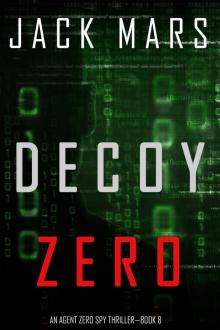 Decoy Zero
Decoy Zero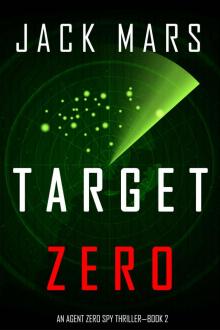 Target Zero
Target Zero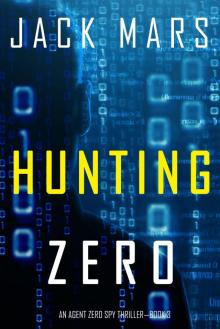 Hunting Zero
Hunting Zero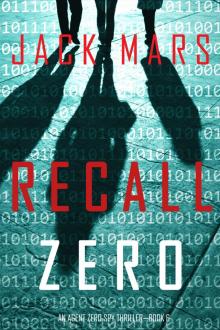 Recall Zero
Recall Zero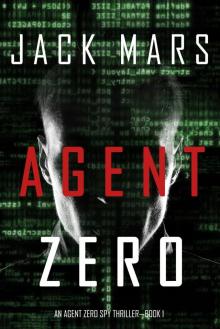 Agent Zero
Agent Zero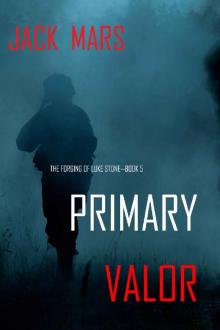 Primary Valor
Primary Valor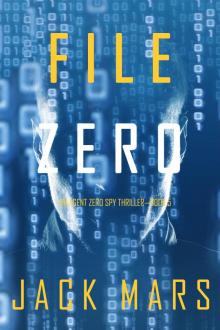 File Zero
File Zero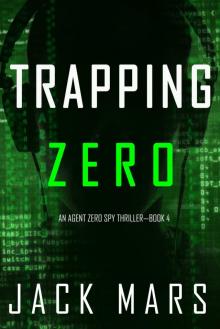 Trapping Zero
Trapping Zero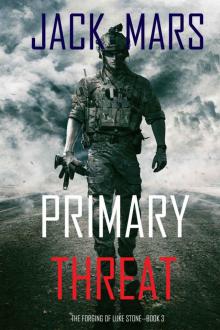 Primary Threat
Primary Threat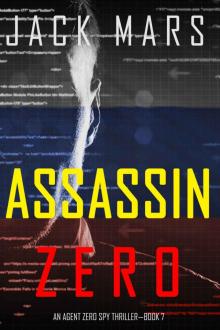 Assassin Zero
Assassin Zero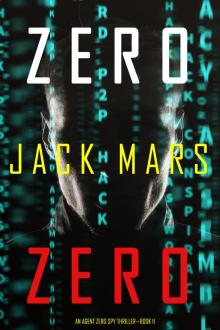 Zero Zero
Zero Zero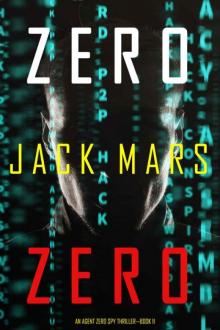 Zero Zero (An Agent Zero Spy Thriller—Book #11)
Zero Zero (An Agent Zero Spy Thriller—Book #11)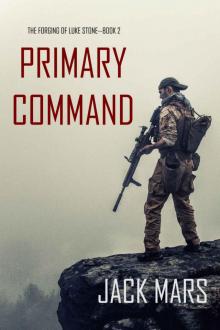 Primary Command
Primary Command![[Luke Stone 02.0] Oath of Office Read online](http://i1.bookreadfree.com/i/03/21/luke_stone_02_0_oath_of_office_preview.jpg) [Luke Stone 02.0] Oath of Office
[Luke Stone 02.0] Oath of Office House Divided
House Divided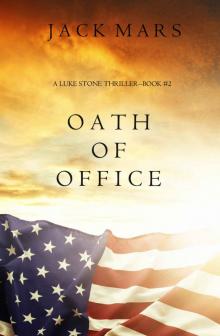 Oath of Office (a Luke Stone Thriller—Book #2)
Oath of Office (a Luke Stone Thriller—Book #2) Our Sacred Honor (A Luke Stone Thriller—Book 6)
Our Sacred Honor (A Luke Stone Thriller—Book 6)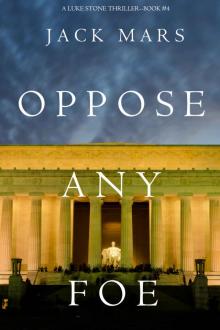 Luke Stone 04 - Oppose Any Foe
Luke Stone 04 - Oppose Any Foe Our Sacred Honor
Our Sacred Honor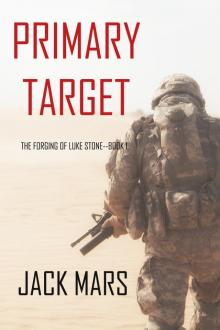 Primary Target
Primary Target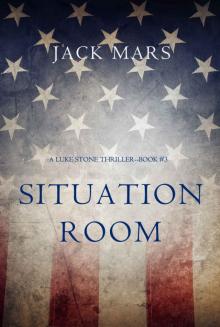 Luke Stone 03 - Situation Room
Luke Stone 03 - Situation Room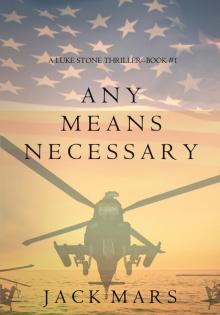 Any Means Necessary: A Luke Stone Thriller (Book 1)
Any Means Necessary: A Luke Stone Thriller (Book 1)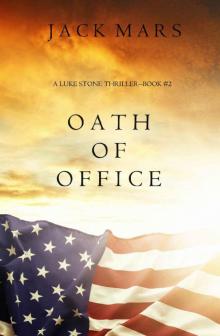 Oath of Office
Oath of Office